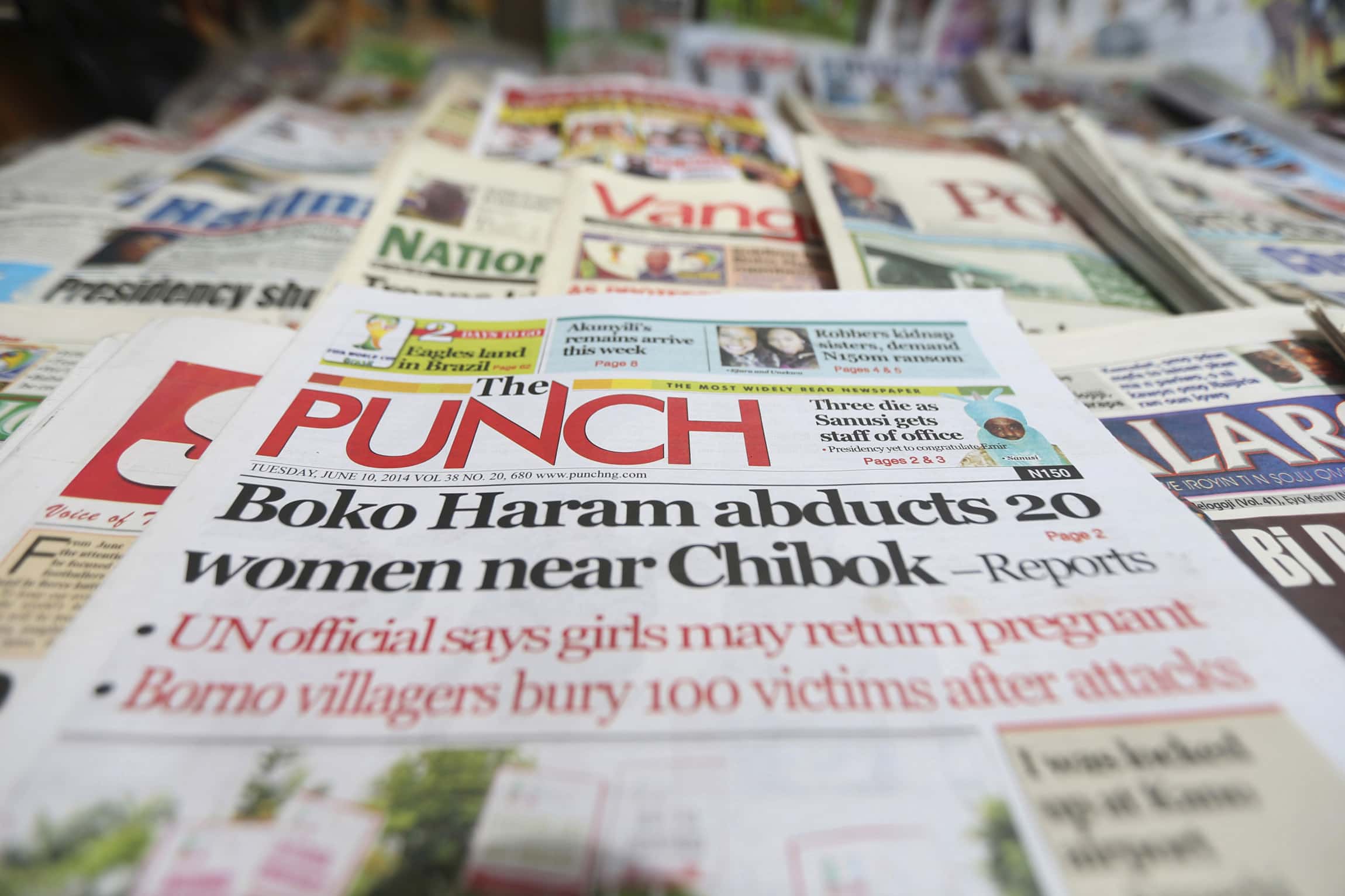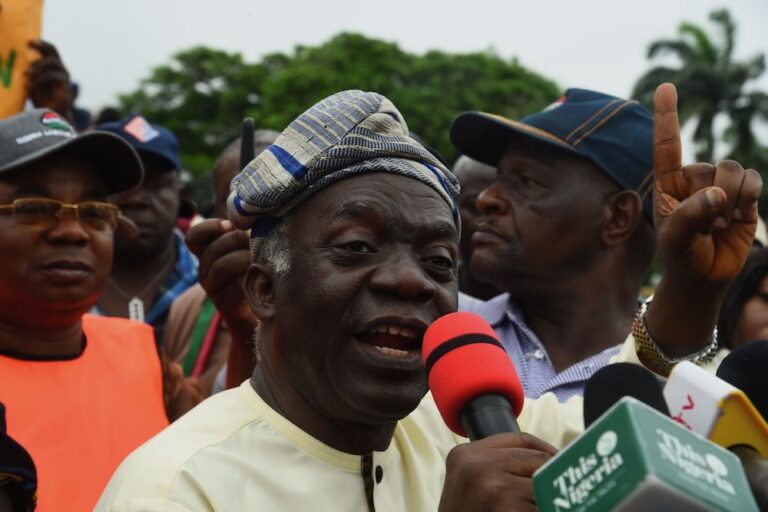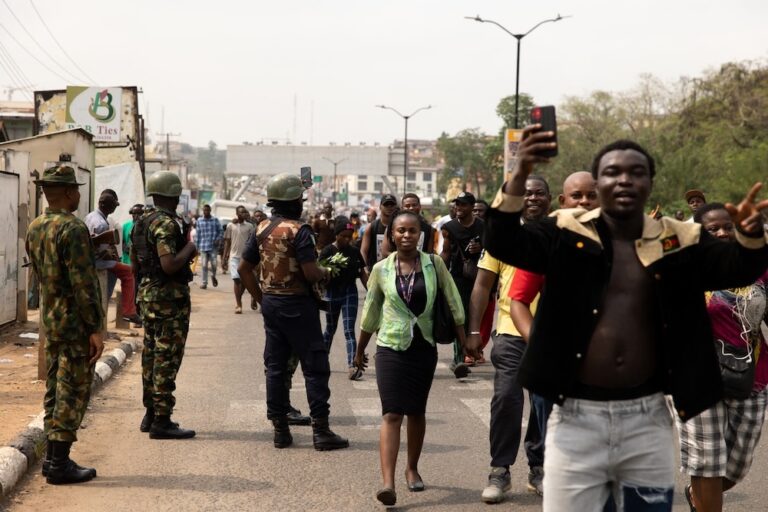Over the past two weeks, Nigerian military and police have detained journalists, confiscated print publications and intercepted vehicles in an attempt to halt the circulation of critical information.
The government of Nigeria does not like the criticism it’s receiving from the press over its alleged inaction regarding Boko Haram – a militant insurgent group responsible for the abduction of more than 270 schoolgirls and numerous bomb blasts around the country.
Over the past two weeks, Nigerian military and police have detained journalists, confiscated print publications and intercepted vehicles in an attempt to halt the circulation of critical information.
On 6 June, four leading newspapers – The Nation, Leadership, Daily Trust and The Punch – were attacked and had copies of their publications confiscated by military personnel, according to the West African Journalists Association (WAJA).
The military described the seizures as a “routine security action” following “intelligence reports indicating movement of materials with grave security implications across the country using the channel of newsprint-related consignments,” according to Reporters Without Borders (RSF).
Said “security action” came shortly after Leadership reported that ten army generals and five non-commissioned officers had been tried and convicted by court martial of complicity with Boko Haram.
According to WAJA, the military described Leadership‘s article as “very unfortunate and meant to do maximum damage to the image of (the) Nigerian Army and its personnel.”
The Committee to Protect Journalists (CPJ) reports that on 6 June – three days after Leadership‘s article came out – soldiers made their way to newspaper distribution centres in major Nigerian cities and prevented their delivery operations.
On that same day, soldiers in Abuja and Warri, Delta State, intercepted distribution vans belonging to The Nation and Leadership newspapers. Media Rights Agenda reports that the driver of the Leadership vehicle and another staff member were detained, and their cell phones seized, upon being stopped.
“Such clampdown on the media is simply unacceptable and does not help the government’s fight against militants who are killing people indiscriminately, including innocent school children,” WAJA president Peter Quaqua said in a press release, referring to the recent events.
“The media has already suffered Boko Haram attacks, the government cannot afford to be a perpetrator – we call for a cease fire,” he added.



